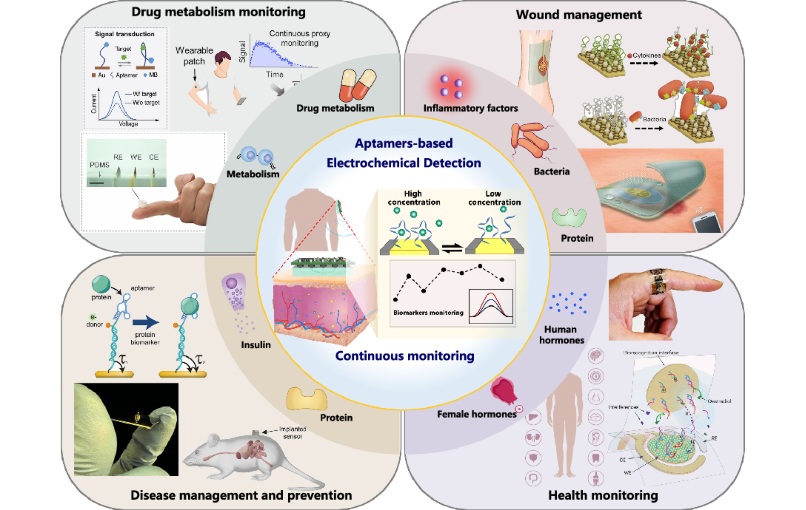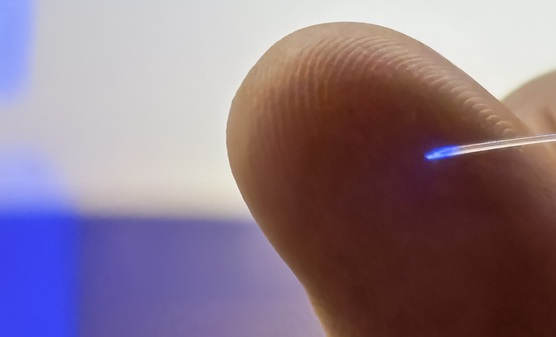Telemedicine System to Connect Trans-Siberian Railways
|
By HospiMedica International staff writers Posted on 07 Jun 2018 |

Image: Trans-Siberian trains will soon provide telehealth capabilities (Photo courtesy of RZD).
An innovative telemedicine system will connect hospitals affiliated with state-owned Russian Railways to facilitate digital healthcare.
The KT Corporation (KT; Seoul, South Korea) digital healthcare solution utilizes artificial intelligence (AI) for precise and accurate diagnosis of cardiovascular problems such as myocardial infarction (MI), as well as respiratory diseases, diabetes, and prostate cancer. The solution also provides ultrasonography to diagnose internal organs, fetal sonography, and basic blood and musculoskeletal tests. The digital healthcare platform also features mobile diagnostics software containing Bluetooth and Wi-Fi for management of diagnostic data and storage of patients' medical history in a mobile electronic medical record (mEMR).
Part of a pilot project commissioned by Russian Railways (RZD; Moscow, Russia), one of the world's three largest rail transportation companies, the mobile diagnostics solution for primary care is slated for integration with the 173 hospitals located in Russian rail stations, as well as on trans-Siberian trains. Under the terms of the agreement, KT will cooperate with the Seoul National University Bundang Hospital (SNUBH; Seoul, South Korea) to set up a telemedicine system for six hospitals, one in Moscow and five in various regions, by June 2018.
KT will supply the digital healthcare solution, and SNUBH will offer diagnostic advice to Russian medical staff and assist in personnel training. The telemedicine system for the trans-Siberian railway, which connects Moscow and Vladivostok, will be operational by late 2018. Trans-Siberian trains, which take a week to make the journey, currently have only basic devices such as thermometers and blood pressure monitors, which make it is difficult to provide emergency care or monitor passengers who should be watched closely, such as pregnant women and heart patients.
“We further look forward to expand our endeavors in Russia, particularly in the fields of online medical care, healthcare platform, and ICT-based operations of diagnosis centers and convalescent homes,” said Koh Yoon-Jeon, chief of KT's Future Business Development Unit. “To this end, we are advancing our expertise in big data analysis and artificial intelligence technology, and also accelerating our efforts to achieve cooperation in e-healthcare with local partners, including the state-owned Sberbank.”
The pilot plan is part of the information communications technology (ICT) medical system expansion project spearheaded by the Korea Health Industry Development Institute, an agency of the Ministry of Health and Welfare. KT, South Korea's leading telephone and Internet provider, also participated in a similar project in 2017, constructing a digital healthcare platform and solution for 12 hospitals in Kazakhstan.
Related Links:
KT Corporation
Russian Railways
Seoul National University Bundang Hospital
The KT Corporation (KT; Seoul, South Korea) digital healthcare solution utilizes artificial intelligence (AI) for precise and accurate diagnosis of cardiovascular problems such as myocardial infarction (MI), as well as respiratory diseases, diabetes, and prostate cancer. The solution also provides ultrasonography to diagnose internal organs, fetal sonography, and basic blood and musculoskeletal tests. The digital healthcare platform also features mobile diagnostics software containing Bluetooth and Wi-Fi for management of diagnostic data and storage of patients' medical history in a mobile electronic medical record (mEMR).
Part of a pilot project commissioned by Russian Railways (RZD; Moscow, Russia), one of the world's three largest rail transportation companies, the mobile diagnostics solution for primary care is slated for integration with the 173 hospitals located in Russian rail stations, as well as on trans-Siberian trains. Under the terms of the agreement, KT will cooperate with the Seoul National University Bundang Hospital (SNUBH; Seoul, South Korea) to set up a telemedicine system for six hospitals, one in Moscow and five in various regions, by June 2018.
KT will supply the digital healthcare solution, and SNUBH will offer diagnostic advice to Russian medical staff and assist in personnel training. The telemedicine system for the trans-Siberian railway, which connects Moscow and Vladivostok, will be operational by late 2018. Trans-Siberian trains, which take a week to make the journey, currently have only basic devices such as thermometers and blood pressure monitors, which make it is difficult to provide emergency care or monitor passengers who should be watched closely, such as pregnant women and heart patients.
“We further look forward to expand our endeavors in Russia, particularly in the fields of online medical care, healthcare platform, and ICT-based operations of diagnosis centers and convalescent homes,” said Koh Yoon-Jeon, chief of KT's Future Business Development Unit. “To this end, we are advancing our expertise in big data analysis and artificial intelligence technology, and also accelerating our efforts to achieve cooperation in e-healthcare with local partners, including the state-owned Sberbank.”
The pilot plan is part of the information communications technology (ICT) medical system expansion project spearheaded by the Korea Health Industry Development Institute, an agency of the Ministry of Health and Welfare. KT, South Korea's leading telephone and Internet provider, also participated in a similar project in 2017, constructing a digital healthcare platform and solution for 12 hospitals in Kazakhstan.
Related Links:
KT Corporation
Russian Railways
Seoul National University Bundang Hospital
Channels
Artificial Intelligence
view channelCritical Care
view channel
Aptamers Enable Real-Time Biomarker Tracking Without Blood Draws
Continuous monitoring of biomarkers is critical for early disease detection, treatment evaluation, and personalized health management. Yet most clinical tests still rely on invasive, single-point blood... Read more
Specialized Dressing with Sensor Monitors pH Levels in Chronic Wounds
Any wound has the potential to become chronic, but the risk is significantly higher in individuals with certain medical conditions. Once a wound becomes chronic, healing slows, complications increase,... Read moreSurgical Techniques
view channel
Brain Implant Records Neural Signals and Delivers Precise Medication
Neurological diseases such as epilepsy involve complex interactions across multiple layers of the brain, yet current implants can typically stimulate or record activity from only a single point.... Read moreAI-Based OCT Image Analysis Identifies High-Risk Plaques in Coronary Arteries
Lipid-rich plaques inside coronary arteries are strongly associated with heart attacks and other major cardiac events. While optical coherence tomography (OCT) provides detailed images of vessel structure... Read moreNeural Device Regrows Surrounding Skull After Brain Implantation
Placing electronic implants on the brain typically requires removing a portion of the skull, creating challenges for long-term access and safe closure. Current methods often involve temporarily replacing the skull or securing metal plates, which can lead to complications such as skin erosion and additional surgeries.... Read morePatient Care
view channel
Revolutionary Automatic IV-Line Flushing Device to Enhance Infusion Care
More than 80% of in-hospital patients receive intravenous (IV) therapy. Every dose of IV medicine delivered in a small volume (<250 mL) infusion bag should be followed by subsequent flushing to ensure... Read more
VR Training Tool Combats Contamination of Portable Medical Equipment
Healthcare-associated infections (HAIs) impact one in every 31 patients, cause nearly 100,000 deaths each year, and cost USD 28.4 billion in direct medical expenses. Notably, up to 75% of these infections... Read more
Portable Biosensor Platform to Reduce Hospital-Acquired Infections
Approximately 4 million patients in the European Union acquire healthcare-associated infections (HAIs) or nosocomial infections each year, with around 37,000 deaths directly resulting from these infections,... Read moreFirst-Of-Its-Kind Portable Germicidal Light Technology Disinfects High-Touch Clinical Surfaces in Seconds
Reducing healthcare-acquired infections (HAIs) remains a pressing issue within global healthcare systems. In the United States alone, 1.7 million patients contract HAIs annually, leading to approximately... Read moreBusiness
view channel
Medtronic to Acquire Coronary Artery Medtech Company CathWorks
Medtronic plc (Galway, Ireland) has announced that it will exercise its option to acquire CathWorks (Kfar Saba, Israel), a privately held medical device company, which aims to transform how coronary artery... Read more
Medtronic and Mindray Expand Strategic Partnership to Ambulatory Surgery Centers in the U.S.
Mindray North America and Medtronic have expanded their strategic partnership to bring integrated patient monitoring solutions to ambulatory surgery centers across the United States. The collaboration... Read more
FDA Clearance Expands Robotic Options for Minimally Invasive Heart Surgery
Cardiovascular disease remains the world’s leading cause of death, with nearly 18 million fatalities each year, and more than two million patients undergo open-heart surgery annually, most involving sternotomy.... Read more















